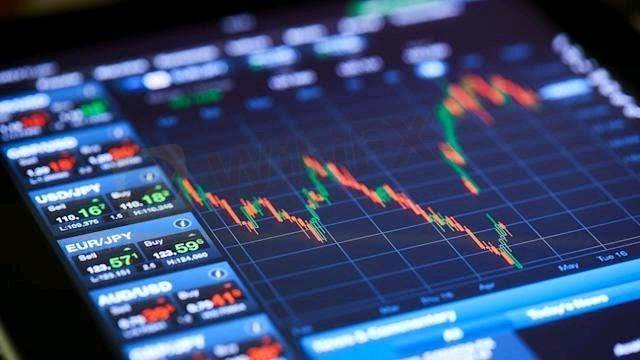
2025-01-30 22:05
IndustryThe Influence of Political Uncertainty
#firstdealofthenewyearFateema
The Influence of Political Uncertainty on Sovereign Credit Ratings, Capital Flows, and Foreign Direct Investment in Emerging Markets.
Political uncertainty in emerging markets can have significant consequences for sovereign credit ratings, capital flows, and foreign direct investment (FDI). This post explores these relationships, highlighting the transmission channels, key case studies, and policy implications.
Transmission Channels from Political Uncertainty to Economic Indicators
Political uncertainty can affect sovereign credit ratings, capital flows, and FDI through various channels:
Policy risk and instability: Political uncertainty can lead to policy unpredictability, potentially undermining investor confidence, increasing borrowing costs, and deterring FDI.
Capital flight and currency pressures: Heightened political risks can trigger capital flight, pressuring exchange rates and reducing central banks' foreign reserves.
Domestic economic disruptions: Political uncertainty can disrupt domestic economic activities, leading to slower growth, reduced tax revenues, and increased public debt, which in turn affects sovereign creditworthiness.
Case Studies on Political Uncertainty and Economic Impacts
Two case studies illustrate the effects of political uncertainty on sovereign credit ratings, capital flows, and FDI:
Brazil: Political instability and corruption scandals in Brazil have contributed to credit rating downgrades, capital outflows, and reduced FDI inflows, exacerbating the country's economic recession in recent years.
Turkey: Geopolitical tensions, political polarization, and policy inconsistencies in Turkey have negatively affected sovereign credit ratings, currency stability, and foreign investment, posing challenges to the country's economic growth prospects.
Policy Implications and Risk Mitigation Strategies
Policymakers and investors can adopt various strategies to mitigate the risks associated with political uncertainty:
Strengthening institutions and policy credibility: Governments should focus on strengthening institutions, improving policy predictability, and promoting good governance to enhance investor confidence and maintain macroeconomic stability.
Diversifying investment portfolios: Investors can diversify their portfolios across various emerging markets and asset classes, reducing exposure to any single country or sector.
Political risk insurance and hedging: Companies can invest in political risk insurance and use financial instruments like currency futures to hedge against potential risks arising from political uncertainty.
In conclusion, political uncertainty can have far-reaching consequences for emerging markets' economic prospects, affecting sovereign credit ratings, capital flows, and FDI. By understanding these relationships, policymakers and investors can implement risk mitigation strategies and promote economic resilience in the face of political challenges.
Like 0
FX3832254201
Trader
Hot content
Industry
Event-A comment a day,Keep rewards worthy up to$27
Industry
Nigeria Event Giveaway-Win₦5000 Mobilephone Credit
Industry
Nigeria Event Giveaway-Win ₦2500 MobilePhoneCredit
Industry
South Africa Event-Come&Win 240ZAR Phone Credit
Industry
Nigeria Event-Discuss Forex&Win2500NGN PhoneCredit
Industry
[Nigeria Event]Discuss&win 2500 Naira Phone Credit
Forum category

Platform

Exhibition

Agent

Recruitment

EA

Industry

Market

Index
The Influence of Political Uncertainty
 Kenya | 2025-01-30 22:05
Kenya | 2025-01-30 22:05#firstdealofthenewyearFateema
The Influence of Political Uncertainty on Sovereign Credit Ratings, Capital Flows, and Foreign Direct Investment in Emerging Markets.
Political uncertainty in emerging markets can have significant consequences for sovereign credit ratings, capital flows, and foreign direct investment (FDI). This post explores these relationships, highlighting the transmission channels, key case studies, and policy implications.
Transmission Channels from Political Uncertainty to Economic Indicators
Political uncertainty can affect sovereign credit ratings, capital flows, and FDI through various channels:
Policy risk and instability: Political uncertainty can lead to policy unpredictability, potentially undermining investor confidence, increasing borrowing costs, and deterring FDI.
Capital flight and currency pressures: Heightened political risks can trigger capital flight, pressuring exchange rates and reducing central banks' foreign reserves.
Domestic economic disruptions: Political uncertainty can disrupt domestic economic activities, leading to slower growth, reduced tax revenues, and increased public debt, which in turn affects sovereign creditworthiness.
Case Studies on Political Uncertainty and Economic Impacts
Two case studies illustrate the effects of political uncertainty on sovereign credit ratings, capital flows, and FDI:
Brazil: Political instability and corruption scandals in Brazil have contributed to credit rating downgrades, capital outflows, and reduced FDI inflows, exacerbating the country's economic recession in recent years.
Turkey: Geopolitical tensions, political polarization, and policy inconsistencies in Turkey have negatively affected sovereign credit ratings, currency stability, and foreign investment, posing challenges to the country's economic growth prospects.
Policy Implications and Risk Mitigation Strategies
Policymakers and investors can adopt various strategies to mitigate the risks associated with political uncertainty:
Strengthening institutions and policy credibility: Governments should focus on strengthening institutions, improving policy predictability, and promoting good governance to enhance investor confidence and maintain macroeconomic stability.
Diversifying investment portfolios: Investors can diversify their portfolios across various emerging markets and asset classes, reducing exposure to any single country or sector.
Political risk insurance and hedging: Companies can invest in political risk insurance and use financial instruments like currency futures to hedge against potential risks arising from political uncertainty.
In conclusion, political uncertainty can have far-reaching consequences for emerging markets' economic prospects, affecting sovereign credit ratings, capital flows, and FDI. By understanding these relationships, policymakers and investors can implement risk mitigation strategies and promote economic resilience in the face of political challenges.
Like 0
I want to comment, too
Submit
0Comments

There is no comment yet. Make the first one.

Submit
There is no comment yet. Make the first one.